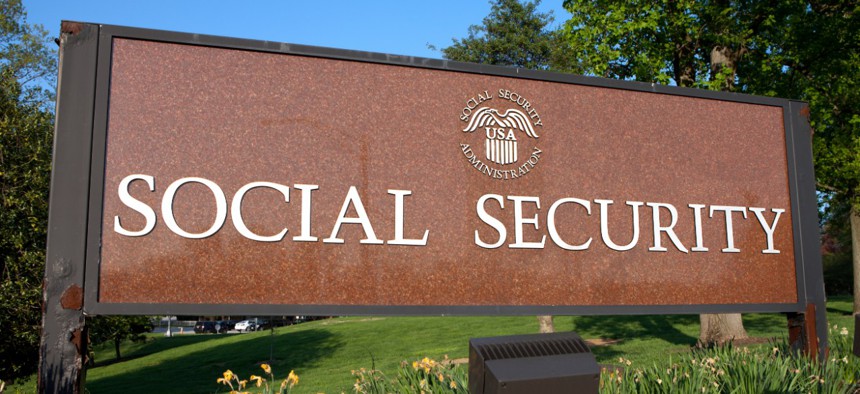
By Mark Van Scyoc / Shutterstock.com
Social Security Institutes Fulltime Telework for Most Employees
Some workers will temporarily be provided weather and safety leave until the agency can increase its supply of equipment, while others could be recalled for short periods to handle non-portable work.
Officials with the American Federation of Government Employees said Friday that leadership at the Social Security Administration is instituting fulltime telework for the vast majority of the agency’s workforce beginning next week.
After weeks of resistance as the coronavirus outbreak grew, Social Security officials told union leaders on a conference call Friday that effective Monday, all of the agency’s teleservice centers would be closed. Every employee who is able to take phone calls remotely will do so from home, while those who cannot will be on weather and safety leave until the agency can acquire and distribute more softphones, a technology where employees can take phone calls on behalf of the agency through their laptops.
Additionally, the vast majority of employees of the agency’s processing and payment centers also are working from home. Those who already had telework agreements began working remotely on Thursday, while all other employees were trained to telework that day and began working from home on Friday.
Field offices, which were closed to the public earlier this week, will be fully shuttered by Tuesday at the latest. Most employees will move to telework at that point, although a “very limited” number of people may be recalled on occasion to handle nonportable work like the mail and facility issues, said Ralph Dejuliis, president of AFGE Council 220.
As part of the Trump administration’s supplemental budget proposal to respond to COVID-19, the Social Security Administration requested an additional $25 million to expand its telework capacity.
Hearings office employees also mostly are working from home full time now. But AFGE Council 215 President Rich Couture said some employees can be recalled to handle telephonic hearings.
“These hearings can be recorded remotely, so I’ve been working with hearings operations to get that applied more broadly so that they can further mitigate the need for anyone to come in at all,” Couture said.
In an email, Social Security Administration spokeswoman Nicole Tiggemann confirmed that the agency is continuing "to work toward maximum telework."
Although Couture was happy to see agency leadership “finally do right by its employees,” he remains concerned about Social Security’s work from home for quarantine program, where employees who are part of a CDC-recognized high-risk category for coronavirus are able to telework to avoid exposure to the virus.
“Right now, the agency is only recognizing chronic conditions as a high risk category, but not approving it for employees aged 60 and older, even though that cohort was previously identified as a separate high-risk category,” Couture said. “And then there’s the question of what happens to employees whose family members at home fall into one of those two categories. [Management] has not budged on either of those two issues.”
Couture said that the recent move to expand fulltime telework to most employees is important, but he fears someone who is or lives with someone who is in a high-risk category could be recalled for nonportable work.
“There may be less of a need for it, but if there are employees who are still subject to recall and they might fall into these categories, they could still face exposure and put themselves or their family members at risk,” he said. “It defeats the purpose of this entire exercise.”







